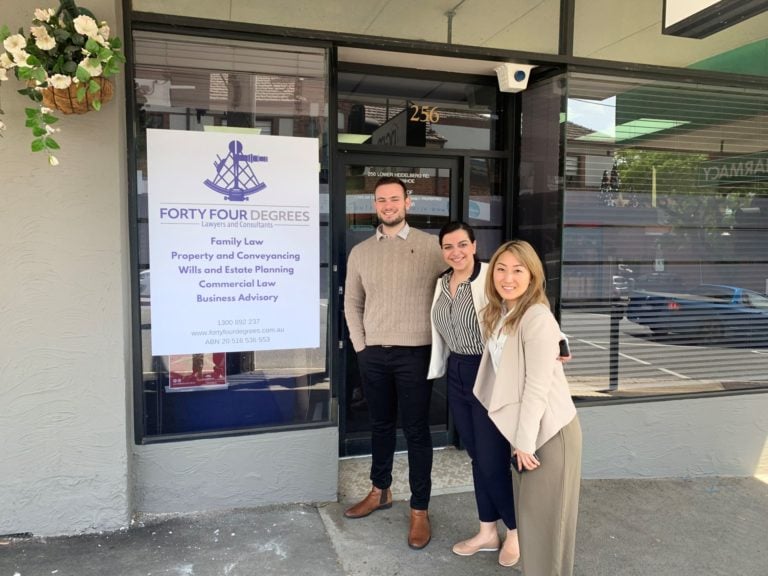Plutarch refers to the invention of the written Will by Athenian statesman Solon, known for having legislated against political, economic and moral decline in archaic Athens. It is fitting that Solonos Street in the Athens CBD, named after the ancient lawmaker, is dotted with law firms and, in particular, the Law School of the University of Athens. Unfortunately, however, despite Greece being the birthplace of Wills, many modern Greek families become casualties on the inheritance battlefield.
Greek Australian lawyer Nicholas Tzimourtas, head of wills and estate planning at Forty Four Degrees Lawyers & Consultants, found this out the hard way when the Australian branch of his family became embroiled in an inheritance dispute with his Greek relatives over a will drafted in Australia – an issue all too frequent with migrant families.
“We are family-orientated in culture, and parents don’t draw up plans, trusting that their children will attend to the handling of their affairs. From what I’ve seen, personally, the older generation do things verbally and trust that their assets will be equally distributed once they pass away,” Mr Tzimourtas told Neos Kosmos, adding that a “lack of estate planning” can cause problems which are as much emotional as they are legal.
READ MORE: The general nature of Australian wills – Keep it in family bloodline
Mr Tzimourtas warns that “sitting down with a lawyer and having an uncomfortable conversation about what happens after death” is a “necessary conversation” to reduce the risk for conflicts between beneficiaries. He said sizeable chunks of inheritances end up as fees for barristers, mediators and lawyers due to “litigious disputes over estates that leave the estate and other potential beneficiaries of the estate with thousands, if not tens of thousands of dollars in legal fees, something that can be mitigated with a Will and appropriate estate planning.”
It seems tempting to opt for a DIY Will Kit, however numerous “seemingly straightforward” things can go wrong in practice once the time comes for the will to be executed. He points to a recent case where a Greek Australian parent left assets to three out of their four children because one had been institutionalised their entire life and had been taken care of by the state.
“When one of the daughters pulled out of being executor to the will, the state trustees stepped in and found that not only was it fair to share the property among all four siblings, but also found that the one which was institutionalised should get the largest portion when taking needs and earning capacity into account,” Mr Tzimourtas said, adding that drafting a will with a lawyer is the best way to ensure that the exact desires of the deceased are executed.

He points to the importance of wording in wills, especially as far as exclusion clauses are concerned as wording which shows malice and spite could be overturned. “Wills are not straightforward as there are mitigating factors such as earning capacity, financial dependence and need,” Mr Tzimourtas said, pointing to the case of a family where one child, who had been living at home into adulthood, was deemed by the courts as the child entitled to the estate because he did not have a job and had a greater financial need than his siblings. “At face value, people might get aggravated, stating he mooched off mum and dad for the entirety of his life, however legally, the other two children were found to have a significantly greater earning capacity and therefore less in need.”
READ MORE: A foreign will may not be applicable in Greece
Things get even more complicated when property in Greece is involved. “Greece has an inheritance tax, however if the deceased is an Australian citizen the heirs have a choice of choosing to have the will registered in the state or territory they live in. If you live in Australia, it is most relevant to do it there,” he said.
“Additionally, if people have properties or shares situated overseas, such as in Greece, then passing away without a Will would not only lead to Australian assets being distributed in accordance with the laws of the relevant state, but assets located overseas would be subject to the laws and potential taxes of the European Union laws. European Union inheritance taxes on properties are listed as some of the highest in the world, 14 per cent in some instances, almost double the rate of the global average of 7.67 per cent.”
Mr Tzimourtas is concerned that research conducted by OmniPoll in 2019 found that over half of adult Australians currently do not have a Will, and 40 per cent have no idea what would happen to their financial estate if they were to pass away without relevant planning. A further 25 per cent of the population believe that their current Wills no longer reflect their intention as to how they want their estate distributed.